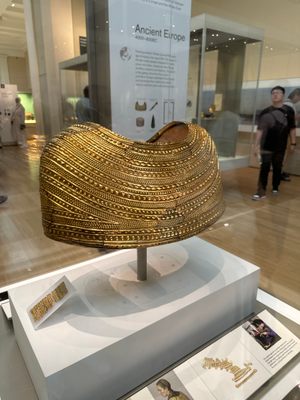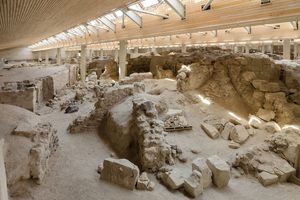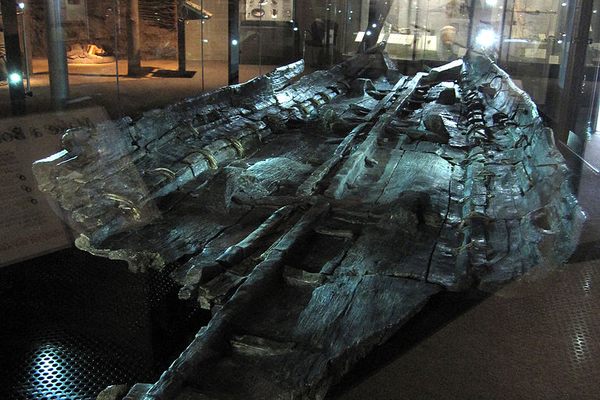About
In 1833, a group of workmen quarrying for stone in Mold, Wales, discovered something incredible. There, caked with mud, was an intricate sheet gold cape. Human bones lay within the earth as well.
The cape, and the human who wore it, were originally interred within a Bronze Age burial mound. Even millennia after the burial took place, the site remained prominent within local folklore. It’s known as Bryn yr Ellyllon, meaning “The Faerie/Goblin Hill.” For many years, the site was left largely untouched, so as not to anger these supernatural figures.
When the cape was eventually unearthed, it was in rather poor shape. The garment was crushed, and the bones of the body it once adorned were smashed into fragments. Many of the various cape pieces wound up in the hands of various parties, and only one of the many beads that once adorned the cape still survives today.
But though the centuries were not kind to the cape, its magnificence was not lost. The artifact has been carefully restored, most of its separated pieces recovered and joined again, so it’s easy to see the remarkable craftsmanship that went into creating it. It’s now housed in the British Museum, displayed for all to see and admire.
Archeologists believe the cape was worn ritualistically by a high-status individual, who, given the slenderness of the cape, was likely female and probably the same person whose remains were found during the discovery. Due to the artifact's splendor, it has been suggested that the person buried in the grave may have been a high priestess or queen of the Ancient Britons.
Related Tags
Know Before You Go
The British Museum is open daily from 10 a.m. to 5:30 p.m. and from 10 a.m. to 8:30 p.m. on Fridays. Entrance is free. There is a security check of bags. No suitcases with wheels allowed.
You can find the mold gold cape in the Britain, Europe and Prehistory gallery of the Museum where it takes pride of place in the centre of the room 51, display case 435.
Community Contributors
Added By
Published
March 27, 2019
Sources
- http://www.bbc.co.uk/ahistoryoftheworld/objects/okZT5JiCTn6lYFR0Gs9Tbg
- https://en.wikipedia.org/wiki/Mold_cape
- https://www.thevintagenews.com/2017/01/01/the-mold-cape-is-one-of-the-finest-achievements-in-gold-craftsmanship-from-prehistoric-europe/
- https://artsandculture.google.com/exhibit/-QJSiXmzf05eLw
- https://museum.wales/cardiff/whatson/6735/The-Mold-Gold-Cape/















































